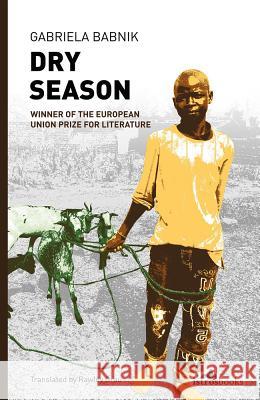Dry Season » książka
Dry Season
ISBN-13: 9781908236265 / Angielski / Miękka / 2015 / 216 str.
"Dry Season "is a record of an unusual love affair. Anna is a 62-year-old designer from Central Europe and Ismael is a 27-year-old African who was brought up on the street, where he was often the victim of abuse. What unites them is the loneliness of their bodies, a tragic childhood, and the dry season, or "Harmattan," during which neither nature nor love is able to flourish. She soon realizes that the emptiness between them is not really caused by their skin color and age difference, but predominantly by her belonging to the Western culture in which she has lost or abandoned all the preordained roles of daughter, wife, and mother. Sex does not outstrip the loneliness, and repressed secrets from the past surface into a world she sees as much crueler and, at the same time, more innocent than her own. Cleverly written as an alternating narrative of both sides in the relationship, the novel is interlaced with magic realism and accurately perceived fragments of African political reality.
Gabriela Babniks novel Dry Season breaks the mould of what we usually expect from a writer from a small, Central European nation. With a global perspective, Babnik takes on the themes of racism, the role of women in modern society and the loneliness of the human condition. Dry Season is a record of an unusual love affair. Anna is a 62-year-old designer from Slovenia and Ismael is a 27-year-old from Burkino Faso who was brought up on the street, where he was often the victim of abuse. What unites them is the loneliness of their bodies, a tragic childhood and the dry hamartan season, during which neither nature nor love is able to flourish. She soon realizes that the emptiness between them is not really caused by their skin colour and age difference, but predominantly by her belonging to the Western culture in which she has lost or abandoned all the preordained roles of daughter, wife and mother. Sex does not outstrip the loneliness and repressed secrets from the past surface into a world she sees as much crueller and, at the same time, more innocent than her own. Cleverly written as an alternating narrative of both sides in the relationship, the novel is interlaced with magic realism.











